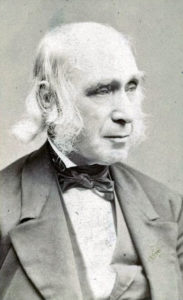
A Transcendental Lesson
I’ve been reading “The Concord Quartet” about Bronson Alcott [Louisa May Alcott’s father], Ralph Waldo Emerson, Nathaniel Hawthorne, and Henry David Thoreau. It’s a great read, and I feel driven to share a story indicative of the book:
Much as they loved him, [Bronson] Alcott’s family frequently wished that his head was not so far up in the clouds and his feet so far from earth, and yet they were often left in awe at the way things turned out for him. In one memorable instance when the family finances were at their lowest ebb, a stranger knocked at the door while Bronson was home alone. The man told a plausible hard-luck story and asked for a five-dollar loan. It happened that a twenty-dollar gold piece had come into Bronson’s possession that very day. Abba and the girls were out on a walk, looking into shops and making plans for how to spend this windfall. After hearing the stranger out, Bronson dug into his pocket, brought out the gold piece, and said, “I don’t have the change you want, but here, take this twenty.” The man grabbed the coin and left, and the usually understanding Abba indulged herself in a window-rattling blowup when she heard the story. As she anticipated, the newspapers the next day gave a description of the man and his method and reported that he had swindled a number of other people in the same neighborhood. Abba felt justified in her ire until an envelope arrived in which they found the gold coin and a hastily scribbled note: “I can’t rob a man so simple hearted as to give me four times what I ask.” The culprit was never caught, and none of the other victims recovered a penny. The Alcott household had been given more food for thought.